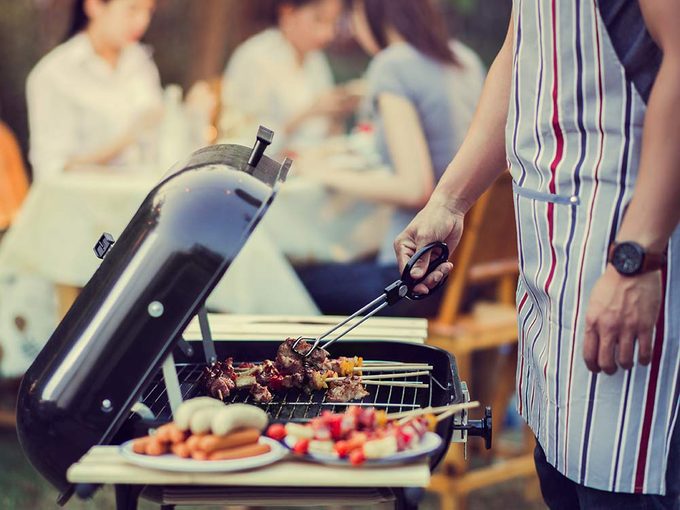Eco-Friendly Barbecue For a Green Summer
There are good times to be had at barbecues, but with them comes the potential to do some serious harm to our planet. These tips will help make going green at your next outdoor shindig a breeze.

Nothing says summer like the smoky, flavour-filled smells of a sizzling barbecue. Unfortunately, firing up that grill and enjoying the party that surrounds it can impacts the environment. With the environment a concern on everyone’s minds, why not adopt some green grilling barbecuing tips to reduce waste and pollution. Doing your part to help the environment will never have tasted so good.
Eco-Friendly BBQ Alternatives
If you already have a barbecue, opt for cleaner burning fuels. For charcoal grills, look for organic or natural lump brands. Liquid petroleum gas (LPS) is an even better alternative as it emits one hundred times less CO2 than the average charcoal briquette. Natural gas is yet another energy-efficient solution.
Avoid toxic materials by using cast iron or stainless steel grills. These remain non-toxic at any temperature. If you’re thinking about buying a new grill, you have a few eco-friendly options available to you. Ceramic grills attain and maintain temperatures more efficiently than metal grills, thereby reducing the total amount of energy consumed during the cooking process. If you’re willing to spend a bit more, a worthwhile and green investment is an infrared grill. Infrared grill use the least amount of energy. They heat quickly, decrease smoke emissions by up to eighty percent and use fifty percent less gas.
Or, better yet…
Solar Powered Grills
Use the power of the sun to cook up your favorite barbecue recipes. The solar powered grill’s dish channels the sun’s rays onto a solar panel, creating enough energy to heat the grill and cook your meat to perfection. Not only reducing your carbon footprint, you reduce the amount of carbon in your burgers too!
Eco-Friendly BBQ Tips
- Use reusable dishware, cutlery and washable cloths instead of napkins. However, if your guest list exceeds your dishware supply, opt for biodegradable, recycled or unbleached picnicware.
- Compost! Composting is a great way to reduce waste, however, only compost vegetable scraps and charcoal ashes, as meats, bones, and fish can “overheat” your compost pile, not to mention attract animals.
- Have recycling bins on hand.
- Clean green. Use an all-natural grill cleaner green to scrub down your grill when the party is over.
Don’t You Know I’m Local?
Buying local is one of the tougher goals to accomplish, because it involves hunting for new sources, but once you’ve found what you’re looking for, the rewards are beyond compare. Local organic foods are fresher, better for the economy and also minimize the environmental impact in the transportation of these foods. Look for USDA certified organic or local grass-fed meat. If you’re a vegetarian, try certified organic soy, tofu or veggie hot dogs and burgers.
Also, buying locally sourced charcoal harvested from sustainably managed forests helps to stop deforestation in tropical habitats.
Happy environmentally-friendly grilling!



